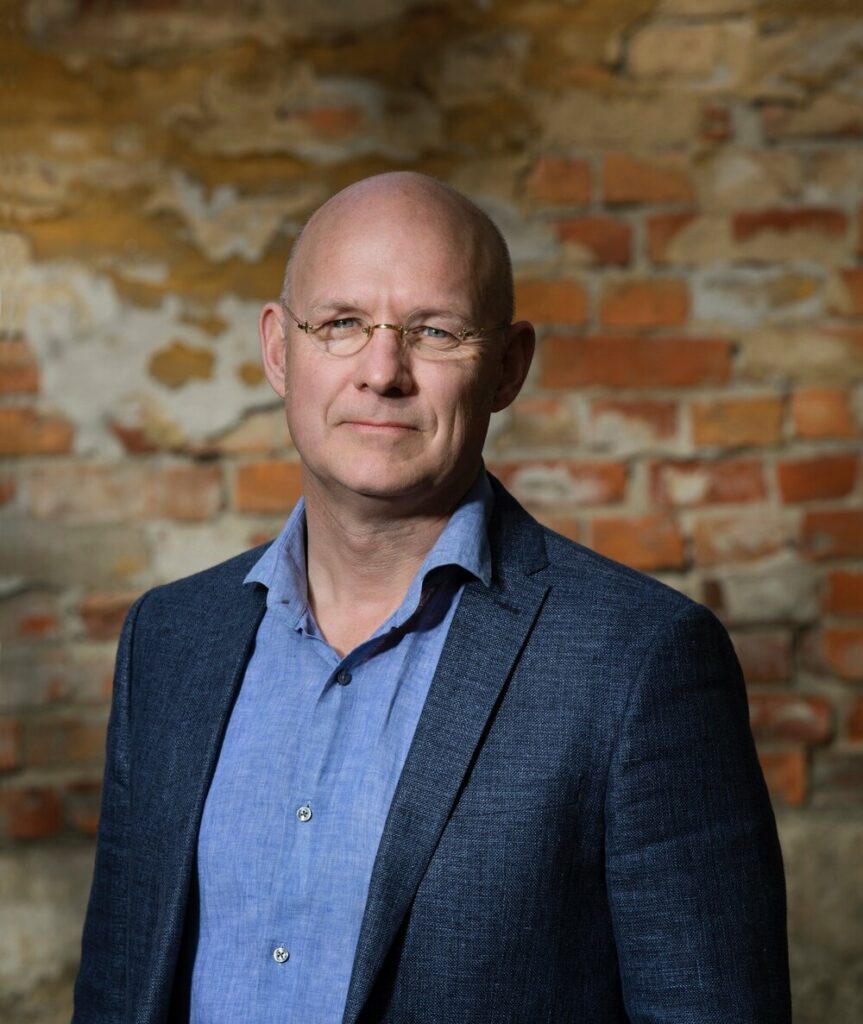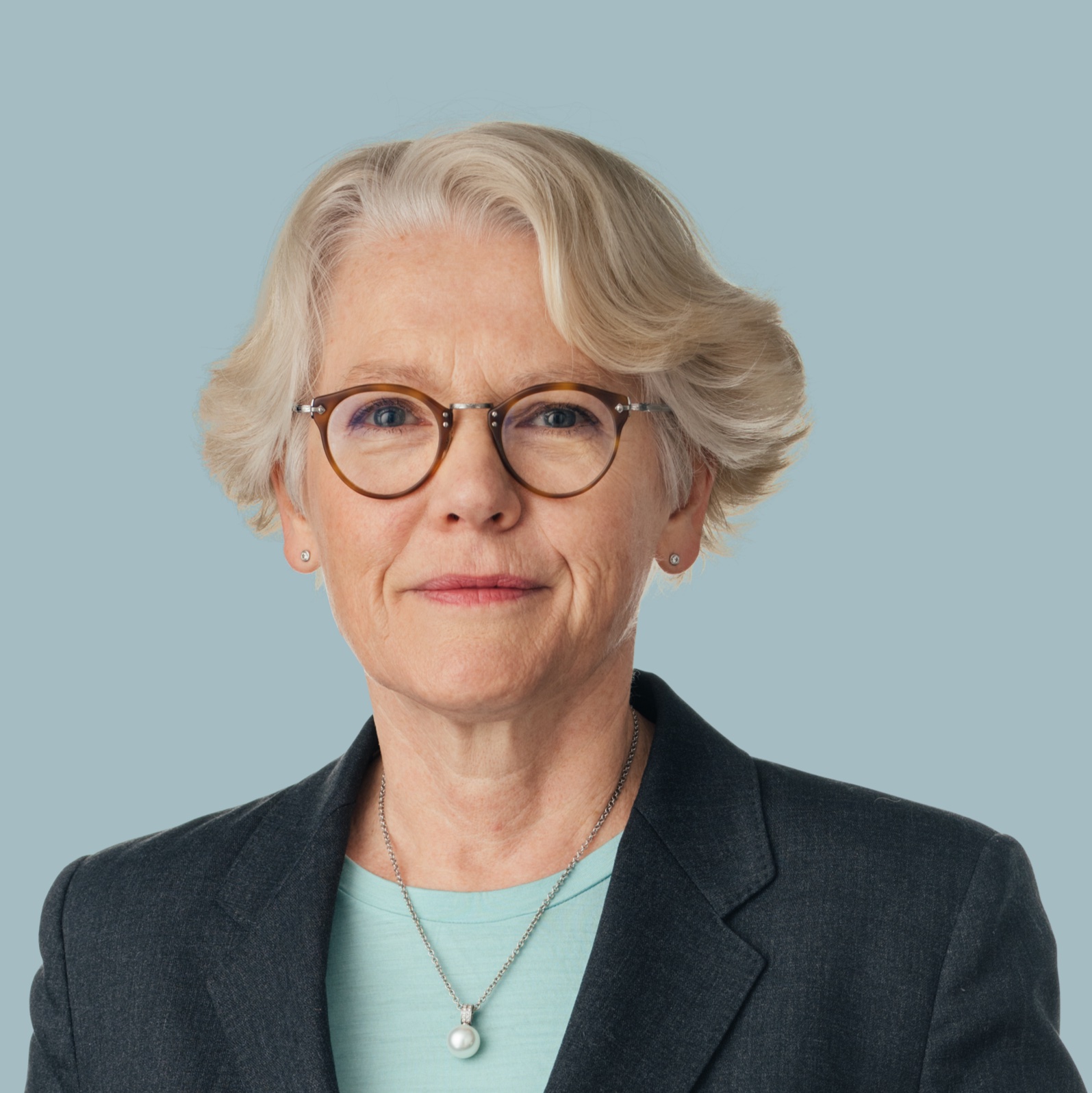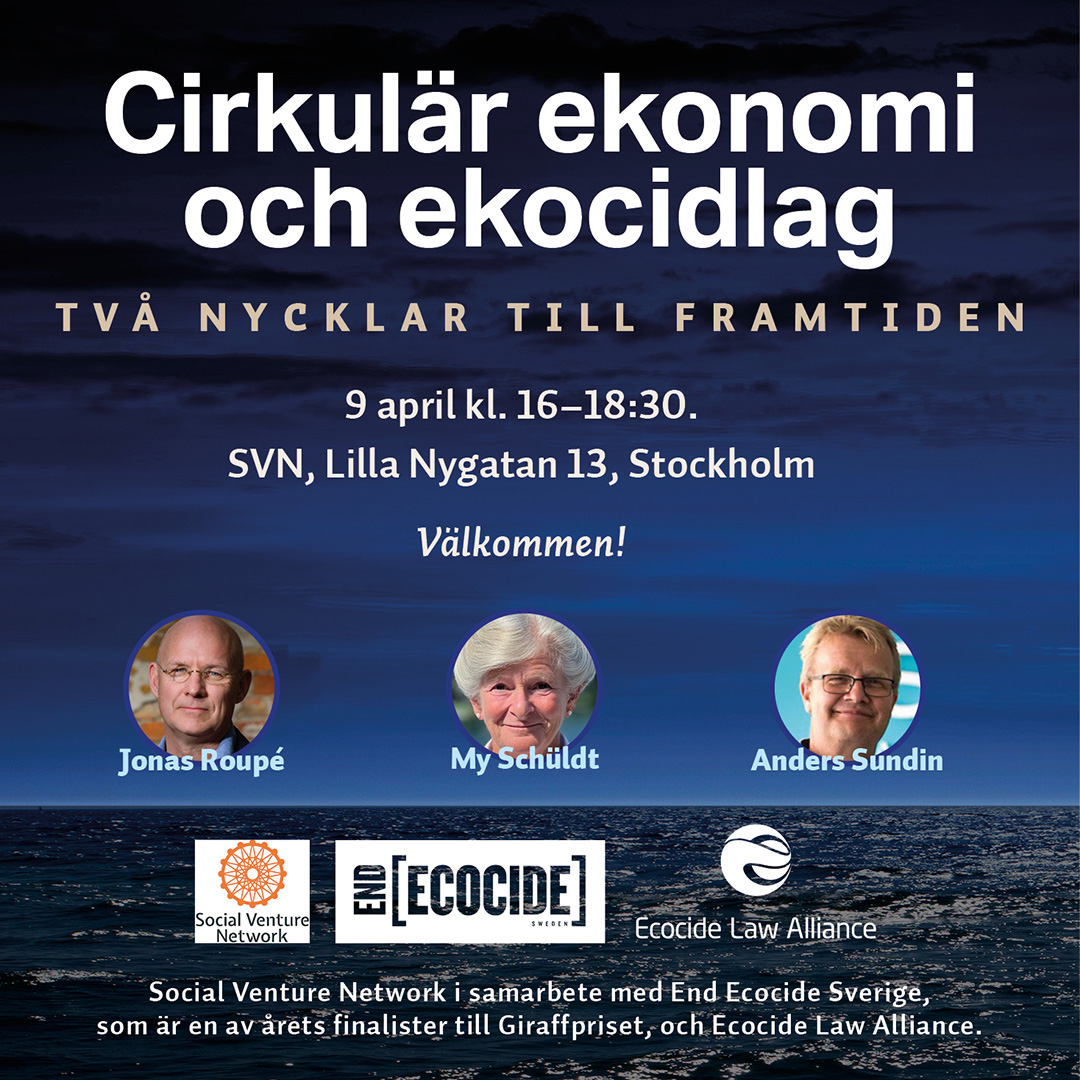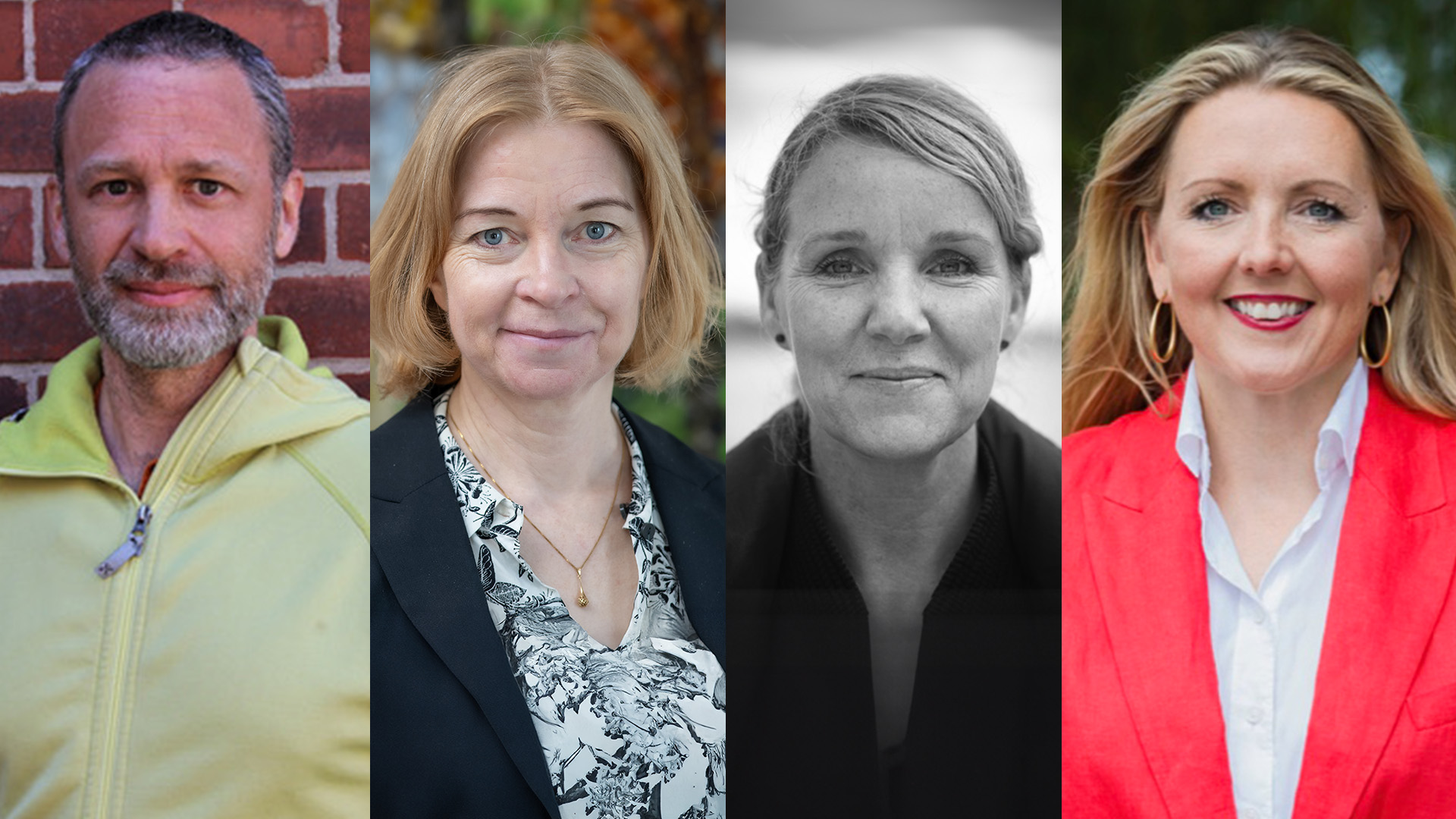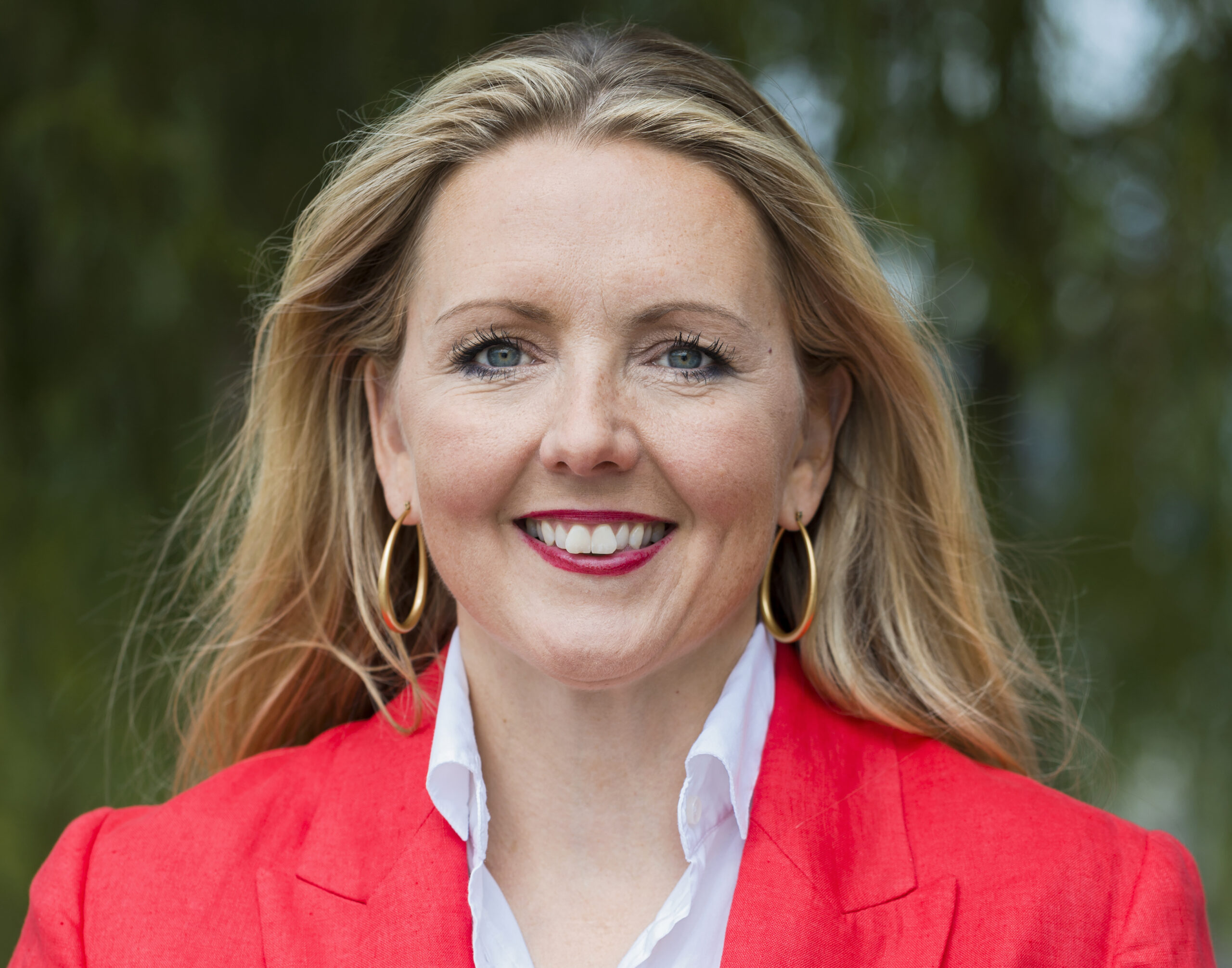
Welcome to a webinar on economics and ecocide law, where a qualified panel will address key issues.
- What is the crucial contribution of a circular economy?
- How does ecocide law unlock the door to a circular economy?
- Why is “hard” law needed? We have thousands of agreements and conventions; do we really need more law?
Our economic system is based on an untrue assumption: that nature has sufficient protection. But there is a loophole in the legal system, and that loophole allows mass destruction of nature and climate.
Companies trying to act responsibly are fighting an uphill battle.
Ecocide law contributes to closing the gap in the legal order and gives the system a powerful nudge in the direction of a circular economy, which is a necessary part of a sustainable future.
End Ecocide invites you to a webinar on March 29th at 15-16 CEST where these questions will be discussed by a panel of experts. The event will be in English.
About the report
The new report “Ecocide law for an Economy within Planetary Boundaries” is a detailed analysis of how a law against mass environmental destruction contributes to sustainable development, and a more circular and regenerative economy.
Written by Jonas Roupé and Professor Kristín Vala Ragnarsdóttir, the report is published by End Ecocide Sweden with support from the Swedish Postcode Foundation and in collaboration with the Wellbeing Economy Alliance and the Schumacher Institute.
’Ecocide Law for an Economy within Planetary Boundaries’ is a careful, detailed, and sobering analysis of the unsustainability of our current economic model and the need for a law to bring it within bounds. – Eleanor Sharpston KC, a former advocate general of the Court of Justice of the European Union.
Here is a 2 page summary of the report.
Panelists/speakers
Elin Bergman is known for being the Circular Economy Queen of Sweden. She is one of the co-founders of the Nordic Circular Hotspot a collaboration platform for accelerating circular economy in the region, and is also the COO and spokesperson of the Swedish circular economy network Cradlenet. She worked for 8 years as WWF Sweden’s circular economy expert, where she developed the international circular economy network Baltic Stewardship Initiative, to enable the recirculation of nutrients in the Baltic Sea region in the agri-food sector. She has previous experience as Marketing and Communications Manager at the sustainability consultancies Tricorona and Respect.
Andrew Morlet is Chief Executive of the Ellen MacArthur Foundation, which was established in 2010. The Foundation aims to accelerate the transition to a circular economy – one that is restorative and regenerative by design, eliminating waste and pollution, and keeping products and materials in high-value use for longer. Prior to joining the Ellen MacArthur Foundation, Andrew was a consultant strategy partner with McKinsey & Company, Andersen Consulting and Accenture, and previously worked in medical research focused on HIV/AIDS epidemiology.
Jonas Roupé has worked with business renewal and sustainability issues since 1995, and with recycling and the circular economy since 2013. As the founder of the Swedish advisory firm Insiktsbolaget, Jonas works nationally and internationally as an advisor and consultant. Jonas holds an MSc in business administration, a BSc in political science and degrees in engineering and psychology. He has held positions as head of Strategy, Business Intelligence, Head of Business Development, Chief Strategy Officer and Chief Marketing Officer with companies like Ericsson, TeliaSonera and Skanova, and is an experienced board member. He is and has been advising privately owned companies, stock traded companies, government owned companies, trade organisations and NGOs.

